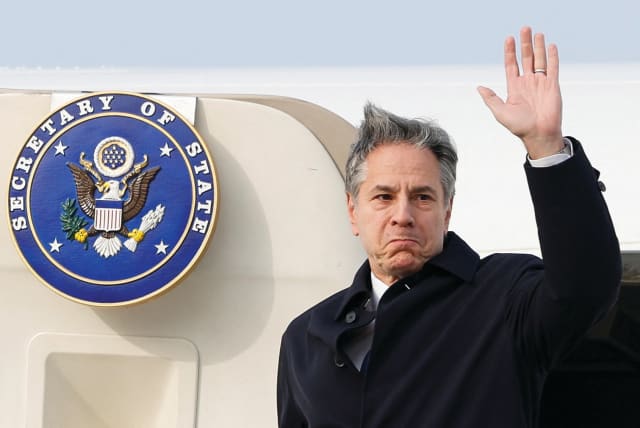Speak softly and carry a big nuclear arsenal: Israel must enhance military self-reliance - opinion

Israel’s nuclear capabilities, though never officially confirmed, are widely recognized as part of its national defense strategy.
The alliance between the United States and Israel, established shortly after Israel’s founding in 1948, is a cornerstone of their foreign policies. Rooted in shared democratic values, strategic interests, and a dedication to Middle Eastern security, this partnership has been instrumental in ensuring Israel’s security through military aid, diplomatic support, and collaborative efforts in military exercises, intelligence sharing, and technology. This relationship underscores a mutual commitment to regional peace and stability.
Israel’s nuclear capabilities, though never officially confirmed, are widely recognized as part of its national defense strategy. It is generally understood that Israel possesses a sophisticated arsenal, including nuclear warheads, which serve as a cornerstone of its deterrence policy. Despite the policy of ambiguity, or “nuclear opacity,” this unconfirmed arsenal is a critical element of the Middle Eastern security landscape. It underscores the strategic depth Israel maintains in defense of its sovereignty and security interests in a volatile region.
Shifts in US-Israel ties
However, during the administrations of President Joe Biden and his predecessor Barack Obama, we have witnessed a gradual shift in this historic alliance, diverging from the longstanding support that Israel has traditionally received.
This shift is influenced by evolving demographics and opinions within the Democratic Party and the greater influence afforded to the State Department under Secretary Antony Blinken. A series of recent actions and statements by the Biden administration during the October 7 War underscores this concerning trend.
These include providing Iran with a $10 billion sanctions waiver, imposing sanctions on Israeli Jews, pushing aggressively for a ceasefire, suggesting that Israel’s top priority should be aiding Gazans rather than winning the war, limiting the supply of weapons and munitions, and Senate Majority Leader Chuck Schumer’s unprecedented call for the ouster of Prime Minister Benjamin Netanyahu. Such actions are proactively undermining Israel’s security and sovereignty and signal a potential shift in the foundational support from its most significant ally.
In light of these concerning developments, Israel must swiftly enhance its strategic defense capabilities to solidify its military self-reliance. This necessitates dramatically increasing the number of nuclear warheads in Israel’s arsenal and advancing and diversifying their delivery systems. Such expansion would ensure a robust, multifaceted deterrent capable of securing Israel’s sovereignty and protecting its citizens in an increasingly uncertain geopolitical landscape.
Simultaneously, Israel must strive to maintain and strengthen its alliance with the United States, leveraging diplomatic avenues to revitalize this essential relationship. Enhancing Israel’s defense capabilities and its international alliances are complementary strategies that safeguard its national security interests.
In an era marked by shifting global alliances and uncertainties, expanding and augmenting Israel’s nuclear arsenal is crucial for safeguarding its future. This strategic imperative would ensure that Israel remains a significant power in the Middle East, capable of defending its interests and ensuring the security of its citizens, regardless of the changing geopolitical dynamics.
The writer is an Israeli businessman and activist.
Jerusalem Post Store
`; document.getElementById("linkPremium").innerHTML = cont; var divWithLink = document.getElementById("premium-link"); if (divWithLink !== null && divWithLink !== 'undefined') { divWithLink.style.border = "solid 1px #cb0f3e"; divWithLink.style.textAlign = "center"; divWithLink.style.marginBottom = "15px"; divWithLink.style.marginTop = "15px"; divWithLink.style.width = "100%"; divWithLink.style.backgroundColor = "#122952"; divWithLink.style.color = "#ffffff"; divWithLink.style.lineHeight = "1.5"; } } (function (v, i) { });

